Who is Nigeria’s greatest goalkeeper of all time is a tricky question to answer about a country that has produced some of the finest shot-stoppers in the history of the game.
The Super Eagles currently boast the talents of Stanley Nwabali, Francis Uzoho, and Italy-based Maduka Okoye, but many before them raised the standard so high that Nigerians have come to expect near-perfection from anyone manning the posts for the national team.
It is not surprising in a country that once produced some of Africa’s safest pair of gloves — Emmanuel Okala, Joe Erico, Alloysius Agu, Ike Shorunmu, to name a few.
While it’s true that the Super Eagles have struggled to find a world-class goalkeeper in recent years — Carl Ikeme being the notable exception — it’s not for lack of tradition.
Nigeria has boasted some brilliant gloves-men across different generations. Soccernet.ng takes a trip down memory lane to rank ten of the best.
Ranking Nigeria’s greatest goalkeeper of all time: Who is No 1?
10. Ike Shorunmu
Ike Shorunmu was ever-present in the national team setup from 1992, narrowly missing out on Nigeria’s debut World Cup squad in 1994. He broke through at the 1995 King Fahd Cup and was poised to be the first choice at France ’98 before injury struck.
However, he bounced back impressively, guiding the Super Eagles to a runners-up finish at the 2000 AFCON and bronze in 2002. He finally fulfilled his dream of appearing at the World Cup that same year. Resilient and dependable, Shorunmu was a symbol of professionalism.
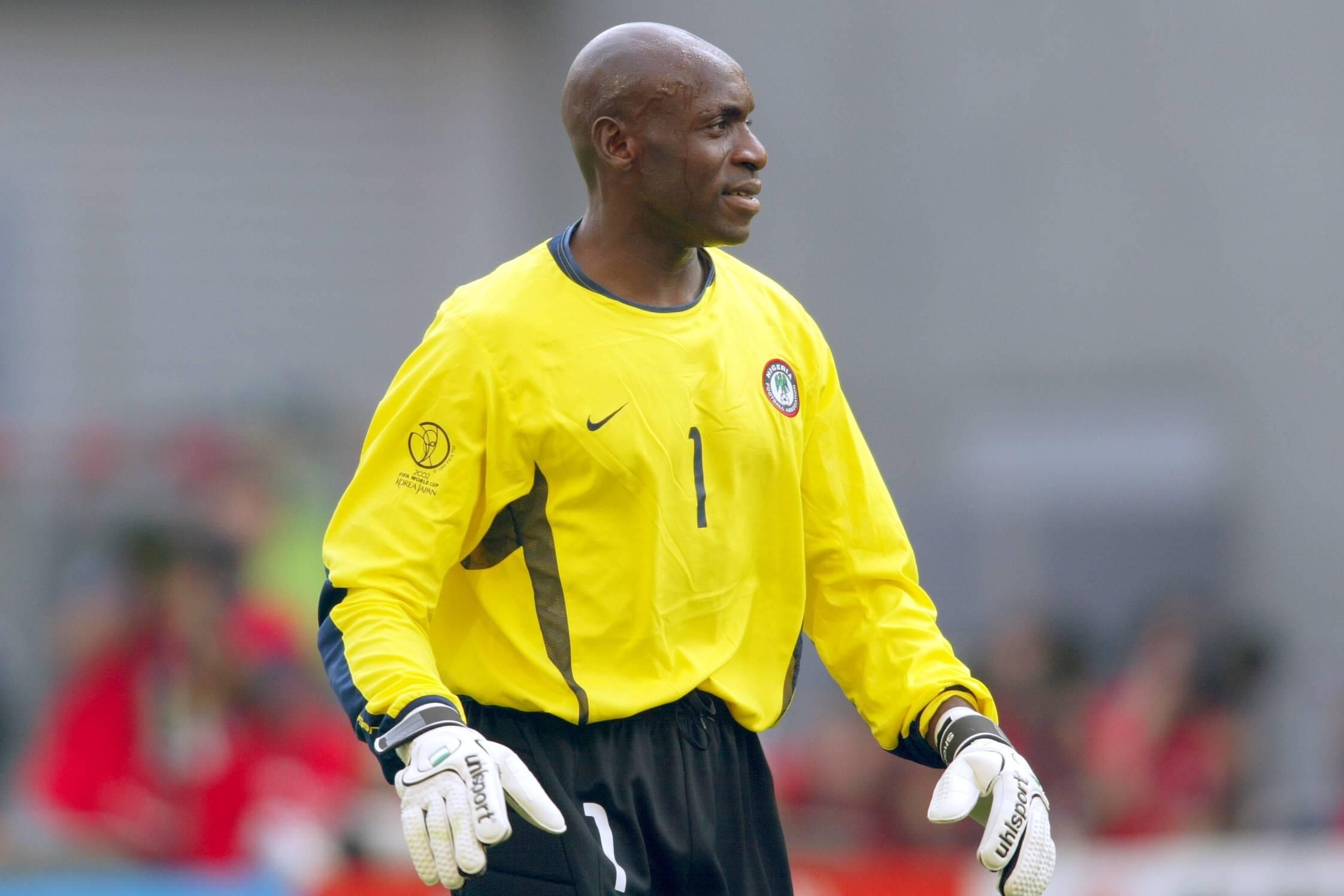
9. Alloysius Agu
Now the national team’s goalkeeper coach, Alloysius Agu’s influence spans decades. He became Nigeria’s first choice in the late 80s, winning silver at the 1990 AFCON and bronze in 1992.
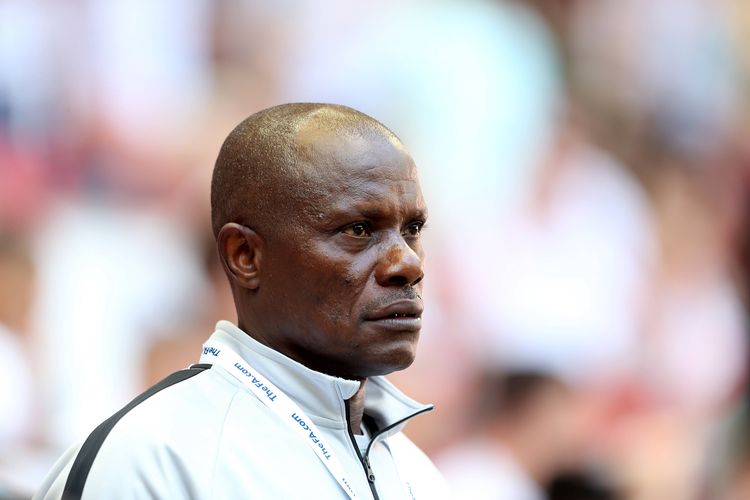
Though Peter Rufai displaced him in the run-up to USA ’94, Agu was part of that iconic golden generation. His club stints in Belgium, the Netherlands, and Turkey underline a robust career. Agu remains a highly respected figure in Nigerian football circles.
8. Wilfred Agbonavbare
Wilfred Agbonavbare may have played second fiddle to Peter Rufai internationally, but he was a colossus at club level — especially at Rayo Vallecano. Between 1990 and 1996, he made 177 appearances, including 76 in La Liga.
He helped Rayo gain promotion, retained his place in Spain’s top flight, and led them back to the elite after relegation. A member of the victorious 1994 AFCON squad, “Willy” was revered in Spain and is fondly remembered following his death in 2015 from cancer at just 48.
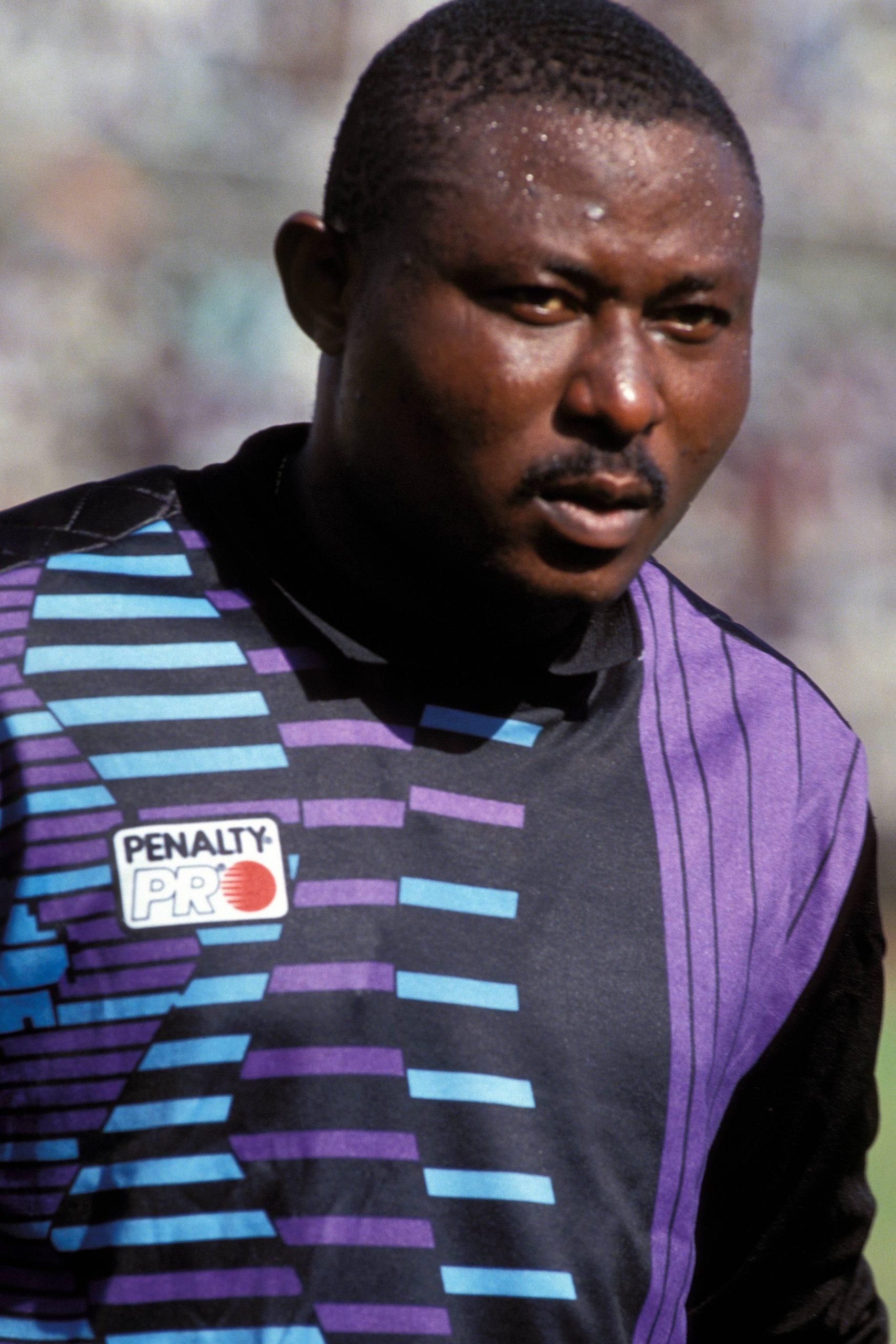
7. Inua Lawal Rigogo
A legend of Nigerian football in the 1960s, Inua Lawal Rigogo was known for his graceful, acrobatic style. He dominated for nearly a decade and was Nigeria’s go-to man in goal when the national game was still finding its feet.
He starred for Lagos ECN, winning the Nigerian Challenge Cup in 1965. Although AFCON qualification eluded Nigeria in that period, Rigogo’s class is uncontested among those who watched him.
6. Peter Fregene
Called up at just 19 after starring for Stationery Stores, Peter Fregene was Nigeria’s first-choice between 1968 and 1971 and featured at the 1968 Olympics. He won FA Cups with both Stationery Stores and Lagos ECN.
Remarkably, after over a decade away, Fregene returned to the national team in 1982. A true testament to his longevity and quality. Even Peter Rufai once described him as his idol growing up.
Top 5: Ranking Nigeria’s greatest goalkeepers of all time
5. Sam Ibiam
Nigeria’s first national goalkeeper, Sam Ibiam, was a legend before independence. He manned the posts for the famed “UK Tourists” of 1949 and kept a clean sheet in Nigeria’s first official international match — a 2-0 win over Sierra Leone.
Nicknamed The Black Magnet, Ibiam held the fort for nine years and dazzled fans across Africa and Europe. He passed away in 2015 at age 90, but his pioneering legacy lives on.
Get Our Sports News First – Join Our WhatsApp Channel Now!
4. Emmanuel Okala
Originally a striker, Emmanuel Okala evolved into one of Nigeria’s most towering goalkeepers. He rose to fame with Enugu Rangers, winning multiple domestic titles and the 1977 African Cup Winners’ Cup.
His international breakthrough came in 1972. He helped Nigeria win gold at the 1973 All-Africa Games and played a key role in AFCON '78 where he was named African Footballer of the Year — the only goalkeeper to ever win the accolade.
In 1980, he was part of the squad that lifted Nigeria’s first AFCON trophy, bowing out at the top.
3. Best Ogedengbe
An IICC Shooting Stars legend, Ogedengbe was fearless and technically sound. He won two league titles, two FA Cups, and the African Cup Winners’ Cup during a stellar club career.
Despite Emmanuel Okala's pedigree, Coach Otto Gloria trusted Ogedengbe as Nigeria’s No.1 at AFCON 1980. That decision paid off — Ogedengbe conceded just one goal and was named Best Goalkeeper of the tournament as Nigeria won its first continental title.
2. Peter Rufai
Filling the boots of giants was no easy task, but Peter Rufai made his own mark. From lifting the FA Cup with Stationery Stores at 20 to conquering Europe with stints in Belgium, the Netherlands, Portugal, and Spain, Rufai had an illustrious career.
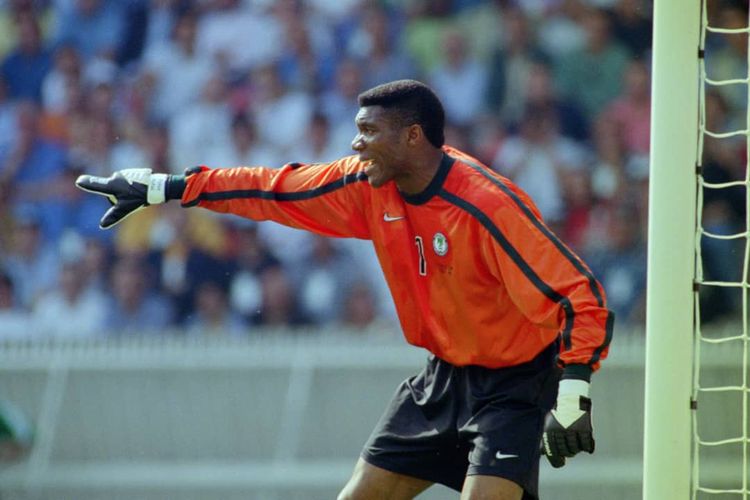
His crowning moment came in 1994 — captaining Nigeria to their second AFCON title and making history as the Super Eagles’ No.1 at their maiden World Cup. He followed up with another World Cup appearance in 1998, solidifying his legacy as one of Nigeria’s most successful keepers.
1. Vincent Enyeama
Arguably Nigeria’s greatest goalkeeper in the modern era, Enyeama deserves more than an honourable mention — if not a top-three spot. From his debut in 2002, he starred at three World Cups and was instrumental in Nigeria’s 2013 AFCON win.
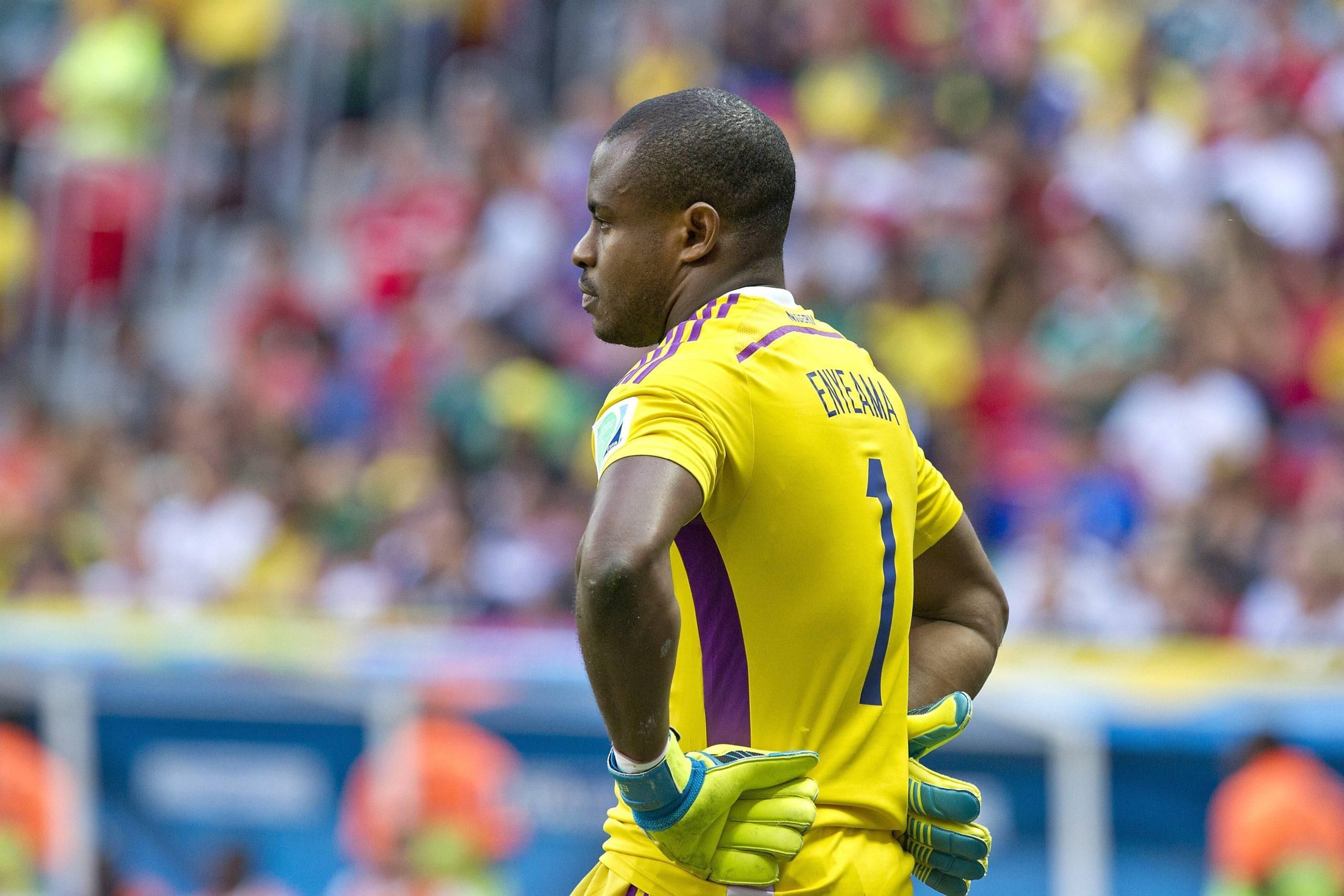
As new goalkeepers aim to match legends like Enyeama, Nigerian fans keep close tabs on every match, save, and clean sheet. If you enjoy adding responsible excitement to your matchdays, see our best betting site for football fans in Nigeria like BC.Game to compare options and find out how BC.Game stacks up for Nigerian punters.

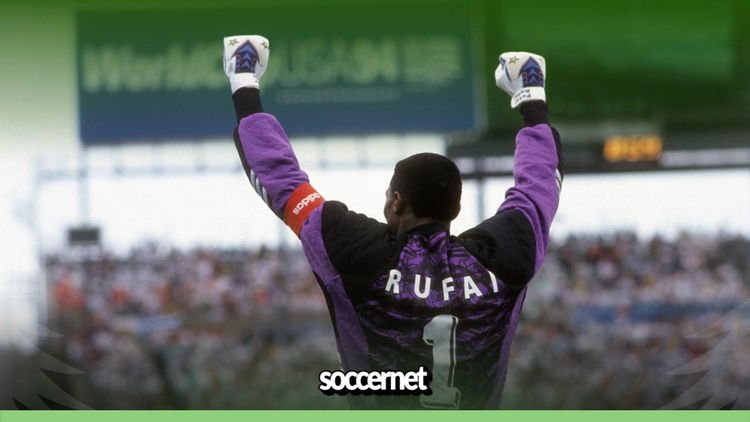
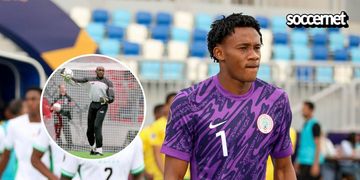
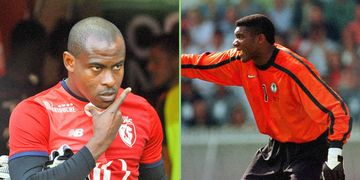
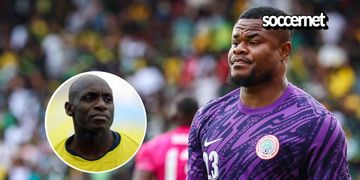
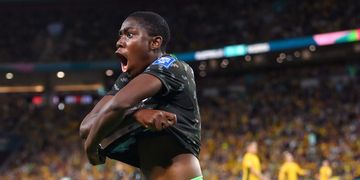
Nice report. Written in lucid, free-flowing Queen’s English. Kudos to the writer. Congrats to the players featured and may the souls of tge dead, among them, rest in perfect peace.
where is agoogo? he is legit the best i hate yall 4life fr